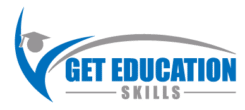Unlocking Educational Success: A Comprehensive Guide to Essential Aspects of Education
Wiki Article

Education plays a crucial role in shaping our personal and professional lives. It encompasses a wide range of topics, including essential skills, examination techniques, career planning, and college preparation. This guide provides a detailed overview of these key aspects to help students, educators, and professionals enhance their educational experiences.
1. The Importance of Education
Education is more than just acquiring knowledge; it is a transformative process that prepares individuals for the complexities of the world. From early learning to higher education and continuous learning, education helps develop critical thinking, adaptability, and a deeper understanding of various subjects. It is foundational for personal growth and societal advancement.
2. Core Education Skills
To excel in both academic and professional settings, certain skills are essential:
Critical Thinking: The ability to analyze and interpret information, solve problems, and make well-informed decisions.
Effective Communication: Skillful expression of ideas through speaking and writing, including active listening.
Problem-Solving: The capacity to identify issues and devise effective solutions.
Time Management: Efficiently organizing tasks and managing time to meet deadlines and achieve goals.
Digital Literacy: Proficiency in using digital tools and technology to enhance learning and productivity.
Mastering these skills enhances educational outcomes and prepares individuals for various challenges.
3. Strategies for Exam Success
Exams are integral to assessing academic progress. Key strategies for effective exam preparation include:
Understanding Exam Formats: Familiarize yourself with the types of exams (standardized tests, quizzes, midterms, finals) and their specific requirements.
Developing a Study Plan: Create a structured schedule that allocates time for review and practice.
Utilizing Practice Materials: Use past papers, sample questions, and study guides to test your knowledge.
Managing Stress: Practice relaxation techniques and maintain a balanced study routine to reduce anxiety.
Effective exam preparation leads to better performance and a deeper understanding of the material.
4. Career Planning and Development
Career planning is crucial for achieving professional goals. Key elements include:
Self-Assessment: Evaluate your strengths, interests, and values to determine potential career paths.
Exploring Career Options: Research different professions, their requirements, and growth prospects.
Skill Enhancement: Pursue relevant qualifications, internships, and experiences to build your resume.
Networking: Connect with professionals in your field through events, online platforms, and informational interviews.
A strategic approach to career planning helps align your education and experiences with your long-term goals.
5. Leveraging Online Career Resources
The internet offers numerous tools to aid in career development:
Job Search Engines: Websites like Indeed, Glassdoor, and LinkedIn provide job listings and company reviews.
Professional Networking Sites: LinkedIn and similar platforms help build connections and discover job opportunities.
Online Learning Platforms: Sites such as Coursera, Udemy, and Khan Academy offer courses and certifications to enhance skills.
Using these resources effectively can streamline job searches and career progression.
6. College Preparation
College is a pivotal step in higher education. Preparation involves:
Researching Institutions: Compare colleges based on their programs, campus facilities, and location.
Application Process: Prepare for application requirements, including personal statements, essays, and recommendation letters.
Financial Planning: Explore tuition costs, scholarships, and financial aid options to manage expenses.
Proper preparation can significantly impact your college experience and future career prospects.
7. Supporting Educators
Educators are vital in shaping students' educational journeys. Effective teaching practices include:
click here Planning Engaging Lessons: Develop lessons that are interactive and align with curriculum goals.
Creating a Positive Environment: Foster a classroom atmosphere that supports learning and student well-being.
Assessing Student Progress: Regularly evaluate and provide feedback to support student growth.
Supporting educators with resources and professional development ensures a high-quality educational experience for students.
8. The Value of General Education
General education provides a broad foundation of knowledge and skills:
Literacy and Numeracy: Core skills in reading, writing, and mathematics.
Social Studies: Understanding historical, geographical, and civic contexts.
Science and Technology: Knowledge of scientific concepts and technological innovations.
A solid grounding in general education prepares individuals for diverse opportunities and lifelong learning.
Conclusion
Education is a multifaceted journey that involves developing essential skills, preparing for exams, planning careers, and navigating college applications. By focusing on these key areas and utilizing available resources, individuals can enhance their educational experiences and achieve their goals. For further information and resources, visit Get Education Skills.